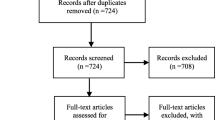Abstract
Objective
The authors examined psychiatric residents’ perceived needs for education in informed consent, principles of ethics and professionalism, and treating vulnerable populations.
Methods
A written survey was distributed to psychiatric residents (N=249) at seven U.S. residency programs in 2005. The survey contained 149 questions in 10 content domains, 6 questions regarding personal ethics experiences during training, and 5 demographic questions. Here, the authors report responses to items regarding informed consent, professional principles, and care of vulnerable populations.
Results
A total of 151 psychiatric residents responded to the survey (61% overall response rate). On a scale of 1: Much Less, to 5: Same, to 9: Much More Education Desired, psychiatric residents indicated that 9 topics relating to informed consent, 10 issues surrounding professional principles, and 25 topics relating to care of vulnerable populations should receive more educational attention than currently provided. No topics were rated as needing less education. Higher ratings of the need for additional educational attention were associated with more reported ethical conflicts encountered during training.
Conclusion
Psychiatric residents at seven diverse U.S. training programs expressed the need for greater educational attention to issues around informed consent, ethical and professional principles, and treating vulnerable populations. These findings reflect the ongoing need for educators to devote curricular attention to these areas so that trainees can incorporate such knowledge effectively into their daily clinical practice in an always-complex, highly fragmented medical care environment.
Similar content being viewed by others
References
Roberts LW, McCarty T, Lyketsos C, et al: What and how psychiatry residents at ten training programs wish to learn about ethics. Acad Psychiatry 1996; 20:131–143
American Board of Internal Medicine Foundation, ACP-ASIM Foundation, European Federation of Internal Medicine: Medical professionalism in the new millennium: a physician charter. Ann Intern Med 2002; 136:243–246
Accreditation Council for Graduate Medical Education: ACGME Outcome Project: ACGME General Competences Version 1.3 (9.22.99). 2000
Perkins HS, Geppert CM, Hazuda HP: Challenges in teaching ethics in medical schools. Am J Med Sci 2000; 319:273–278
Diekema DS, Shugerman RP: An ethics curriculum for the pediatric residency program: confronting barriers to implementation. Arch Pediatr Adolesc Med 1997; 151:609–614
Lazarus CJ, Chauvin SW, Rodenhauser P, et al: The program for professional values and ethics in medical education. Teach Learn Med 2000; 12:208–211
Hayward RS, Hober WG: Student directed teaching of medical ethics at a Canadian medical school. J Med Educ 1985; 60:384–389
Roberts LW, Geppert CM, Warner TD, et al: Bioethics principles, informed consent, and ethical care for special populations: curricular needs expressed by men and women physicians-in-training. Psychosomatics 2005; 46:440–450
Roberts LW, Warner TD, Green Hammond KA, et al: Becoming a good doctor: perceived need for ethics training focused on practical and professional development topics. Acad Psychiatry 2005; 29:301–309
Jain S, Hoop JG, Dunn LB, et al: Psychiatry residents’ attitudes on ethics and professionalism: multisite survey results. Ethics and Behavior 2010; 20:10–20
Jain S: Results of a multisite survey of U.S. psychiatry residents on needs for education in professionalism and ethics. Acad Psychiatry 2011; 35:174–182
Lapid M, Moutier C, Dunn L, et al: Professionalism and ethics education on relationships and boundaries: psychiatric residents’ training preferences. Acad Psychiatry 2009; 33: 461–469
Roberts LW, Green Hammond KA, Geppert CM, et al: The positive role of professionalism and ethics training in medical education: a comparison of medical student and resident perspectives. Acad Psychiatry 2004; 28:170–182
Rutherford BR, Aizaga K, Sneed J, et al: A survey of psychiatry residents’ informed-consent practices. J Clin Psychiatry 2007; 68:558–565
Robitscher J: Informed consent for psychoanalysis. J Psychiatry Law 1978; 63:363–370
Branch WT Jr, Kern D, Haidet P, et al: The patient—physician relationship: teaching the human dimensions of care in clinical settings JAMA 2001; 286:1067–1074
Misch DA: Evaluating physicians’ professionalism and humanism: the case for humanism “connoisseurs.” Acad Med 2002; 77:489–495
Baernstein A, Oelschlager AM, Chang T, et al: Learning professionalism: perspectives of preclinical medical students. Acad Med 2009; 84:574–581
Agency for Healthcare Research and Quality: National Healthcare Disparities Report. Rockville, MD, Department of Health and Human Services, 2007
Author information
Authors and Affiliations
Corresponding author
Rights and permissions
About this article
Cite this article
Jain, S., Lapid, M.I., Dunn, L.B. et al. Psychiatric Residents’ Needs for Education About Informed Consent, Principles of Ethics and Professionalism, and Caring for Vulnerable Populations: Results of a Multisite Survey. Acad Psychiatry 35, 184–190 (2011). https://doi.org/10.1176/appi.ap.35.3.184
Received:
Revised:
Accepted:
Published:
Issue Date:
DOI: https://doi.org/10.1176/appi.ap.35.3.184




